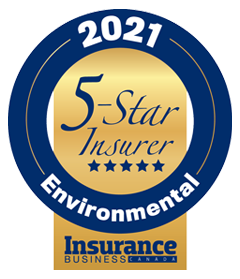
Transportation of Pollutants as Cargo
5-Star Awards 2021: Environmental Insurance
Transportation of pollutants as cargo insurance covers businesses that transport pollutants and possible pollutants as cargo.
5-Star Transportation of pollutants as cargo Insurers
- Berkley Canada
- Burns & Wilcox
- Cansure
- Northbridge Insurance
- Victor Canada
What is transportation pollution liability?
Transportation pollution liability, otherwise known as TPL, is pollution insurance for ‘over the road,’ covering those who require protection for possible pollution during transportation. Transportation pollution liability coverage may also include unloading and loading in case your cargo causes pollution.
Transportation pollution liability is crucial since it provides coverage for bodily injury, property damage, defense, spill clean-up, and could also cover you for a chemical or fuel spill from a covered vehicle. There are also various ways to enhance coverage, which includes non-owned disposal sites, contractors pollution liability, pollution coverage for a third-party or common carrier transit, and pollution coverage for your premises. Typically, those who purchase transportation liability insurance include fuel and oil dealers, soil excavation contractors, medical waste haulers, companies in need of commercial vehicle pollution coverage, and emergency response contractors.
Does umbrella cover pollution?
There are umbrella policies that do provide coverage for sudden and accidental pollution liability usually omitted from general liability policies. A major factor that should act as a guide when you are searching for a personal umbrella policy is whether or not it covers the ‘gaps’, i.e. the liability risks your business is exposed to that is not covered by your company’s primary policy. If your company works with hazardous waste, for example, that might fall within a ‘gap’ and required added coverage.
How much does this insurance cost?
Pollution liability insurance policies have a wide price range, depending on the business. If you use hazardous chemics, your premiums will be higher than if you own a business that uses less. There are various factors to account for, including: the type of hazardous materials or chemicals used; the type of business being insured; the proximity of the business to residential neighbourhoods; and how the hazardous waste is disposed. The best way to figure out how much your company will pay for this type of insurance is to review quotes from various insurers. That will help you find a policy that provides the right coverage for a competitive price.
Keep up with the latest news and events
Join our mailing list, it’s free!
